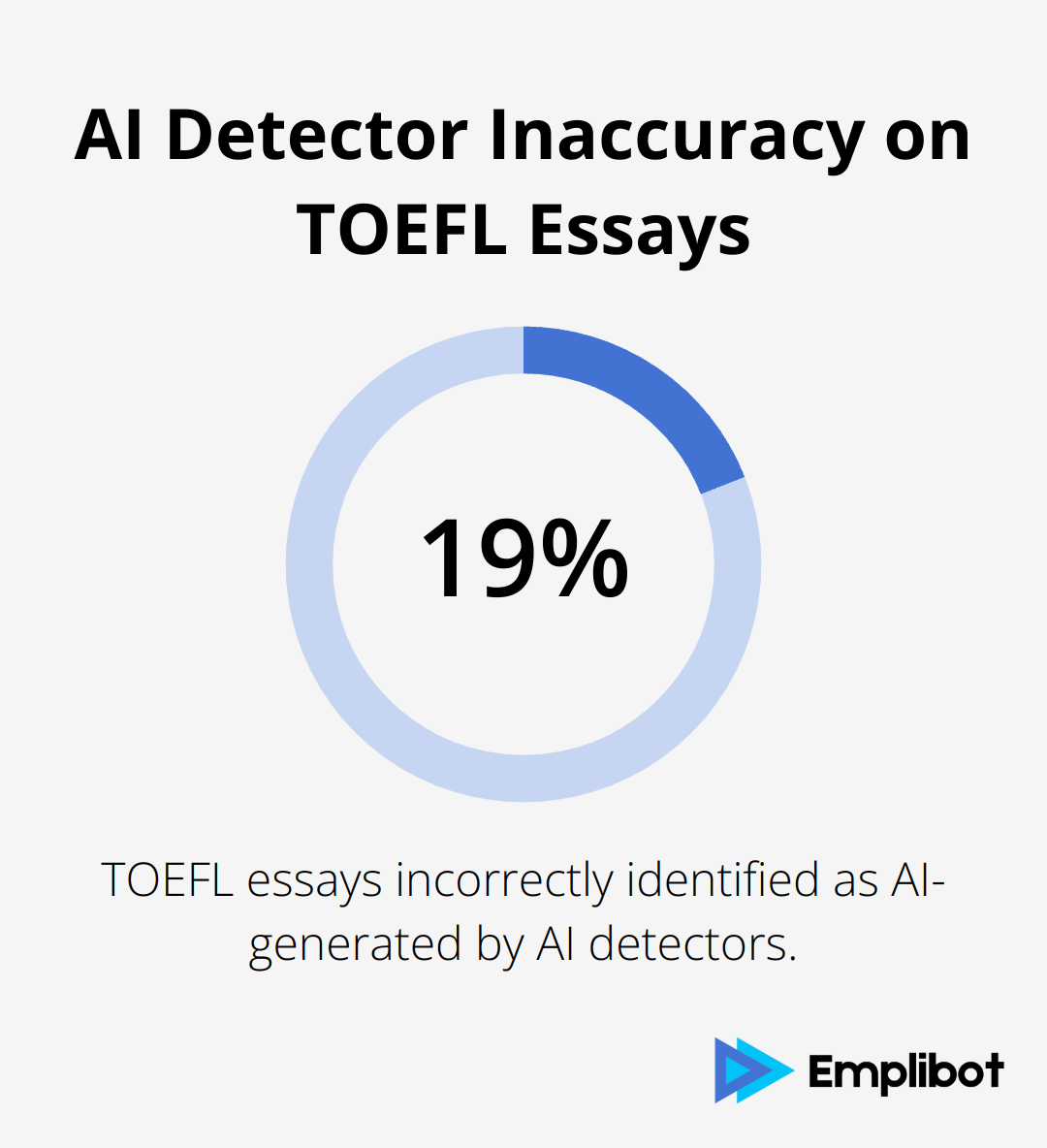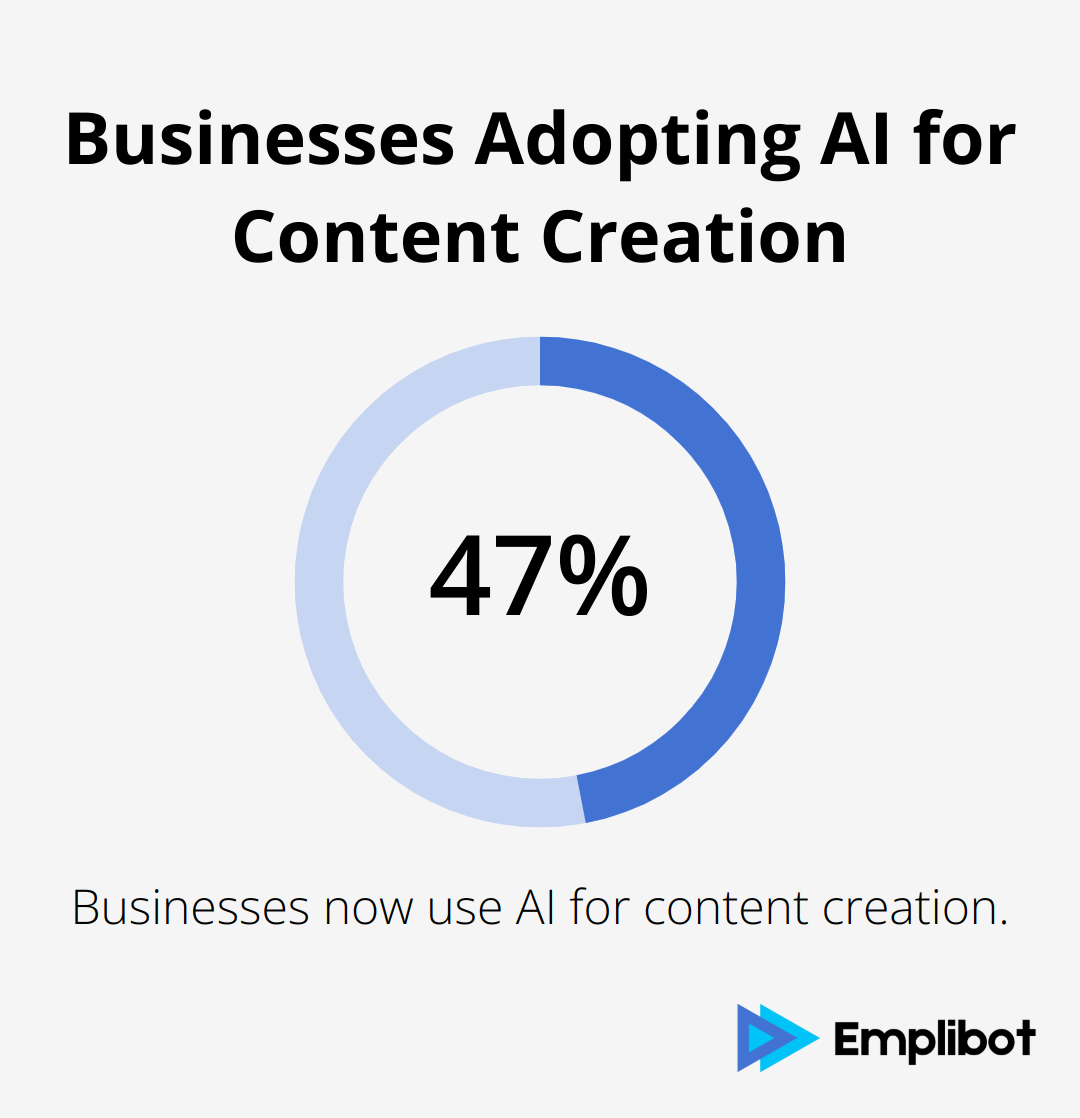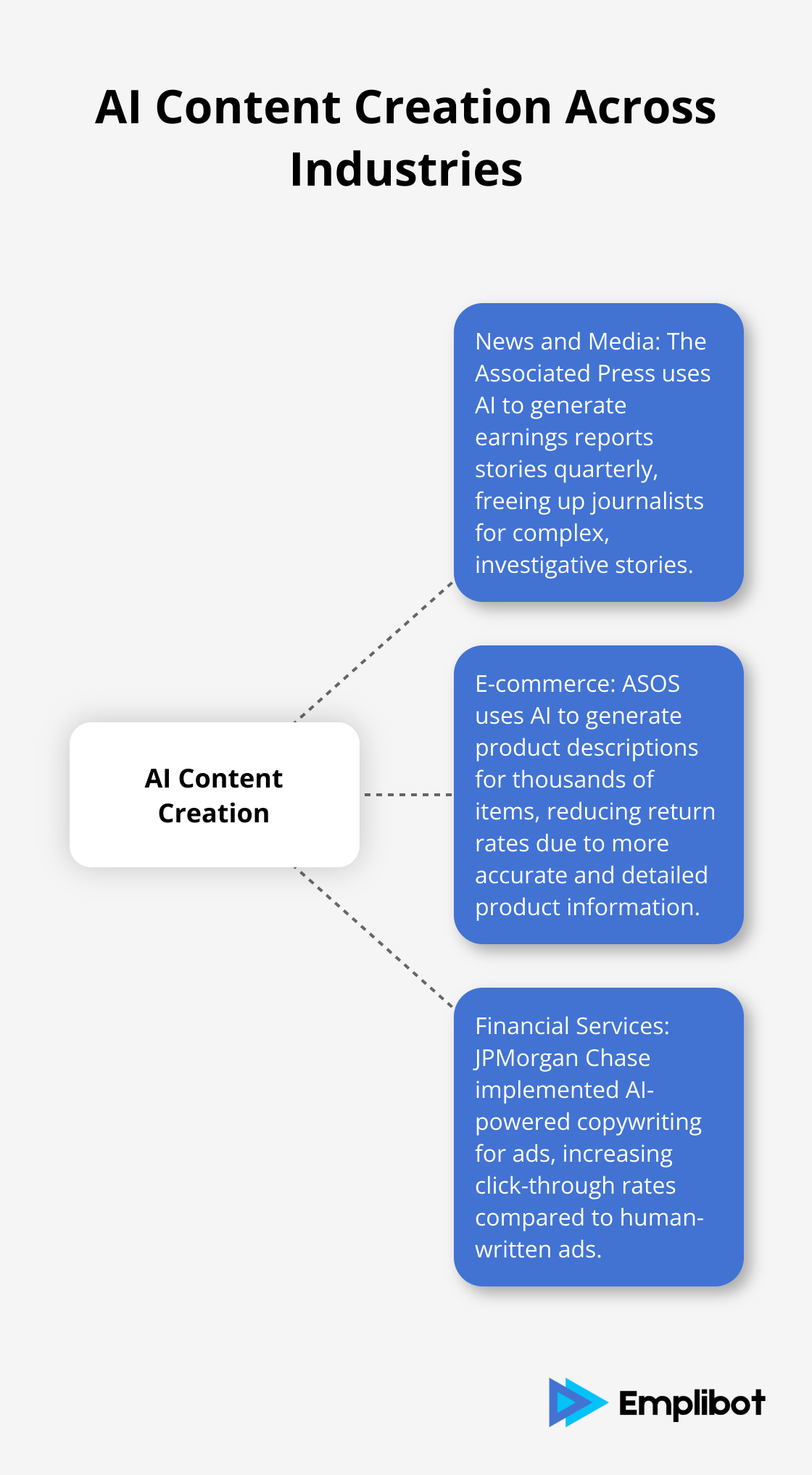AI detectors don’t work, and we’re here to tell you why. At Emplibot, we’ve seen firsthand how these tools fail to accurately distinguish between human and AI-generated content.
The truth is, high-quality AI writing is now indistinguishable from human writing. This blog post will explore why AI detection methods are flawed, how search engines really view AI content, and the immense value AI brings to content creation.
Contents
ToggleWhy AI Detectors Fail
AI detectors don’t work. These tools claim to distinguish between human and AI-generated content, but they fight a losing battle against rapidly advancing language models.
The Illusion of Detection
AI detectors typically analyze text patterns, word choices, and sentence structures to identify potential machine-generated content. However, these methods rely on outdated assumptions about AI writing capabilities. Modern language models produce text that’s virtually indistinguishable from human writing.
A Stanford University study found that AI detectors unanimously identified 19% of TOEFL student essays as AI-generated. This high error rate proves how unreliable these tools are, especially when dealing with diverse writing styles.

The Perplexity Problem
Most AI detectors heavily rely on a metric called “perplexity” to flag potential AI-generated text. Perplexity measures how predictable a piece of text is. The problem? This metric favors native English speakers and penalizes those with different writing styles or language backgrounds.
James Zou, a Stanford researcher, warns against using AI detectors due to their unreliability and vulnerability to gaming strategies. He emphasizes that these tools can be easily fooled by simple techniques (like changing sentence structures or altering word choices).
The Arms Race of Language Models
As AI language models improve, they become increasingly adept at mimicking human writing patterns. This ongoing evolution makes it nearly impossible for detection tools to keep up. What might be detectable today could be undetectable tomorrow.
Tests have shown that purely AI-generated text is often flagged similarly to human-written content by AI detection tools. This lack of distinction proves that current AI writing is sophisticated enough to pass as human-created.
Focus on Quality, Not Origin
The reality is clear: AI detectors don’t work reliably. Instead of relying on these flawed tools, try to create high-quality content that provides value to your audience. Whether it’s human-written or generated by advanced AI tools (like Emplibot), the quality of the content is what truly matters.
As we move forward, it’s essential to understand how search engines view AI-generated content. Let’s explore Google’s stance on this matter and why content quality trumps origin in the eyes of search algorithms.
What Do Search Engines Really Think About AI Content?
Google’s Evolving Stance on AI-Generated Content
Search engines, particularly Google, have changed their view on AI-generated content. The old belief that search engines penalize AI-written text no longer holds true. Google now prioritizes high-quality, valuable content, regardless of its origin.
Content Quality Trumps Origin
Google’s primary focus is the value a piece of content provides to users. Their guidelines emphasize expertise, experience, authoritativeness, and trustworthiness (EEAT). These factors determine search rankings, not whether a human or AI wrote the content.
Google’s spam policies state that AI-generated content is not inherently problematic. What matters is adherence to their quality guidelines. This means well-crafted AI content can perform just as well as human-written content in search results.
The AI Content Creation Boom
The use of AI in content creation has exploded. A recent study found that 47% of businesses now use AI for content creation. This trend will likely continue as AI tools become more sophisticated and accessible.

For businesses, this means using AI for content creation is not only acceptable but can provide a strategic advantage. AI tools can help produce high-quality content at scale, meeting the demands of modern content marketing strategies.
Search Engines’ Sophisticated Evaluation Methods
Search engines have become increasingly advanced in evaluating content quality. They examine factors like relevance, depth of information, and user engagement. These metrics don’t depend on whether a human or an AI wrote the content.
A crucial point to remember: search engines can’t definitively determine if content is AI-generated. They measure how users interact with the content. High bounce rates, low time on page, and lack of engagement are red flags for any content (AI-generated or not).
The Path to Search Engine Success
To succeed in search rankings, businesses should focus on creating valuable, informative content that meets user needs. This approach works whether they use AI tools or not. The key is to prioritize quality and user experience above all else.
As we’ve seen, search engines don’t discriminate against AI-generated content. But what about the actual value of using AI for content creation? Let’s explore the benefits and real-world applications of AI in various industries.
Why AI Content Creation Is a Game-Changer
Productivity Boost
AI content creation tools transform the speed at which businesses produce valuable content. This efficiency boost allows marketing teams to focus on strategy and creativity instead of getting bogged down in content production details.
A mid-sized e-commerce company (using AI content tools) reported an increase in blog post output without quality loss. This content surge led to an increase in organic traffic within six months.
Enhanced Creativity
AI doesn’t stifle creativity – it enhances it. AI tools generate unique ideas and perspectives that human writers might overlook. This synergy between human creativity and AI capabilities results in more diverse and engaging content.
The Content Marketing Institute’s survey showed marketers who use AI for content creation reported an increase in their outputs’ creativity. This creativity boost translates to more engaging content that captures and retains audience attention.
Industry Success Stories
AI-generated content impacts various industries. Here are some concrete examples:
- News and Media: The Associated Press uses AI to generate earnings reports stories quarterly. This automation frees up journalists to focus on more complex, investigative stories.
- E-commerce: ASOS (the online fashion retailer) uses AI to generate product descriptions for thousands of items. This resulted in a reduction in return rates due to more accurate and detailed product information.
- Financial Services: JPMorgan Chase implemented AI-powered copywriting for their ads and saw an increase in click-through rates compared to human-written ads.
These success stories underscore AI’s transformative power in content creation. As AI technology evolves, the possibilities it opens up for businesses of all sizes are exciting.

The Future of Content Marketing
AI content creation isn’t just a trend – it’s a powerful tool reshaping the marketing landscape. Businesses that embrace AI can produce more content, faster, without sacrificing quality or creativity. The result? Better engagement, increased traffic, and ultimately, more conversions.
AI tools offer a complete content marketing solution that runs on autopilot or allows for manual control. This flexibility enables businesses to tailor their content strategy to their specific needs and goals.
It’s important to note that AI detectors don’t work at all. Search engines like Google don’t care how content is generated as long as it’s valuable. When using high-quality AI tools like Emplibot, the quality of the content matters – not how it’s generated.
Final Thoughts
AI detectors don’t work reliably due to their inability to keep up with evolving language models. Search engines like Google prioritize content quality and value over its origin, focusing on expertise, experience, authoritativeness, and trustworthiness. This shift opens new possibilities for businesses and content creators to leverage AI tools effectively.
High-quality AI tools for content creation can boost productivity and creativity significantly. These tools enable the production of more engaging, diverse, and valuable content at scale. The key lies in delivering genuine value to your audience, regardless of the content generation method.
Emplibot revolutionizes content marketing by automating WordPress blogs and social media (from keyword research to SEO optimization). This powerful platform helps increase traffic, leads, and sales while saving time and resources. The future of content marketing thrives on creating high-quality, engaging content that resonates with audiences, not on outsmarting unreliable AI detectors.




![Will AI Kill Blogging? [What You Need To Do Today]](https://wp.emplibot.com/wp-content/uploads/emplibot/ai-kills-blogging-1751008068-768x456.jpeg)





